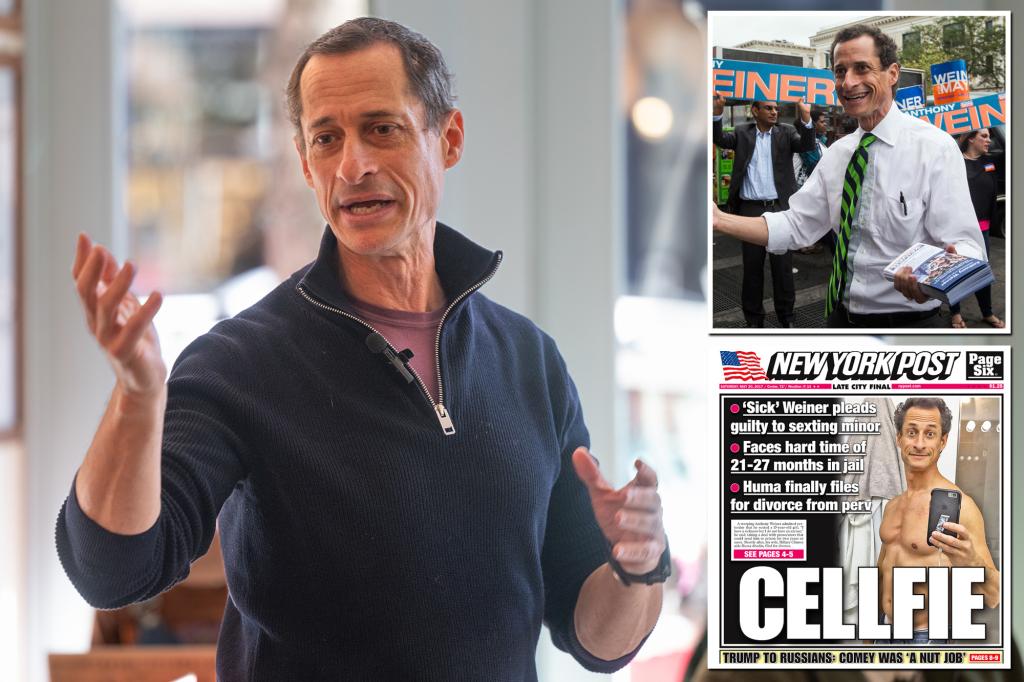Paragraph 1: The Return of a Disgraced Politician
Anthony Weiner, a name synonymous with political scandal, has resurfaced on the New York political scene, formally filing to run for City Council District 2. This marks a bold, if not audacious, attempt to rehabilitate his image and reclaim a position in public office after a series of self-inflicted downfalls. Weiner’s political career, once promising, came crashing down over a decade ago due to a series of sexting scandals, culminating in a criminal conviction and imprisonment for sexting a minor. Despite the baggage of his past, Weiner is determined to re-enter the political arena, focusing on a council seat representing several Lower Manhattan neighborhoods.
Paragraph 2: A “True Exploratory Committee” or a Calculated Comeback?
While Weiner downplays his candidacy as an "exploratory" endeavor, his actions suggest a more concerted effort. His registration of a political committee, "Weiner 25," with the Campaign Finance Board and subsequent filing for the District 2 seat indicate a serious commitment to the race. Furthermore, his scheduled appearance at a candidate forum hosted by the Downtown Independent Democrats reinforces the notion that he is actively pursuing this political comeback. This strategic move, requiring him to have an official committee, suggests Weiner is using the forum as a platform to reintroduce himself to the electorate and test the waters for his potential return.
Paragraph 3: The Shadow of Past Scandals Looms Large
Weiner’s past transgressions cast a long shadow over his current aspirations. His 2011 resignation from Congress, forced by a sexting scandal involving adult women and a minor, remains a stark reminder of his ethical lapses. His subsequent attempt at political redemption in the 2013 mayoral race was derailed by yet another sexting scandal, demonstrating a pattern of reckless behavior. This second scandal also had broader political ramifications, reigniting an FBI investigation into Hillary Clinton’s emails just weeks before the 2016 presidential election. The investigation, stemming from explicit photos found on Weiner’s laptop, became a major campaign issue and arguably contributed to Clinton’s defeat.
Paragraph 4: The Impact on Clinton and Weiner’s Legal Consequences
The discovery of the explicit material on Weiner’s laptop, during an investigation into his communications with a 15-year-old girl, inadvertently entangled his then-wife, Huma Abedin, a close aide to Hillary Clinton. This connection provided fodder for Clinton’s political opponents and fueled public distrust, potentially influencing the outcome of the election. For Weiner, the consequences were far more personal and severe. He pleaded guilty in 2017 to transferring obscene material to a minor, a felony charge that resulted in an 18-month prison sentence. Released in 2019, he now seeks to reintegrate into public life and rebuild his political career, a challenging task given his tainted reputation.
Paragraph 5: Testing the Waters and Gauging Public Opinion
Weiner’s recent appearances and public statements reveal a carefully orchestrated attempt to gauge public sentiment and lay the groundwork for his campaign. His weekly radio show on 77WABC has served as a platform to express his desire to "be of service" and re-engage with the New York community. This public re-emergence allows him to test the waters and assess the public’s appetite for his political comeback. He’s framing his candidacy as a desire to contribute to the city’s future, highlighting his past experience and presenting himself as a reformed individual eager to serve the public good.
Paragraph 6: A Policy Platform and a Calculated Appeal
Weiner’s preparation for the upcoming election extends beyond public appearances and statements. He is finalizing a policy document titled "25 Ideas for ’25," a clear nod to the 2025 election cycle, showcasing his intention to offer concrete solutions to the city’s challenges. This document signifies a strategic move to position himself as a serious candidate with tangible plans for improving the city. His confident assertion that "The Post will like a lot of them," suggests a calculated appeal to a specific media outlet and a broader attempt to generate positive press coverage. This calculated move reflects Weiner’s understanding of the media landscape and his willingness to engage with the press, despite his history of negative media attention. He enters the race against a field of other declared candidates, all vying for the same seat, setting the stage for a competitive and potentially contentious election cycle.

